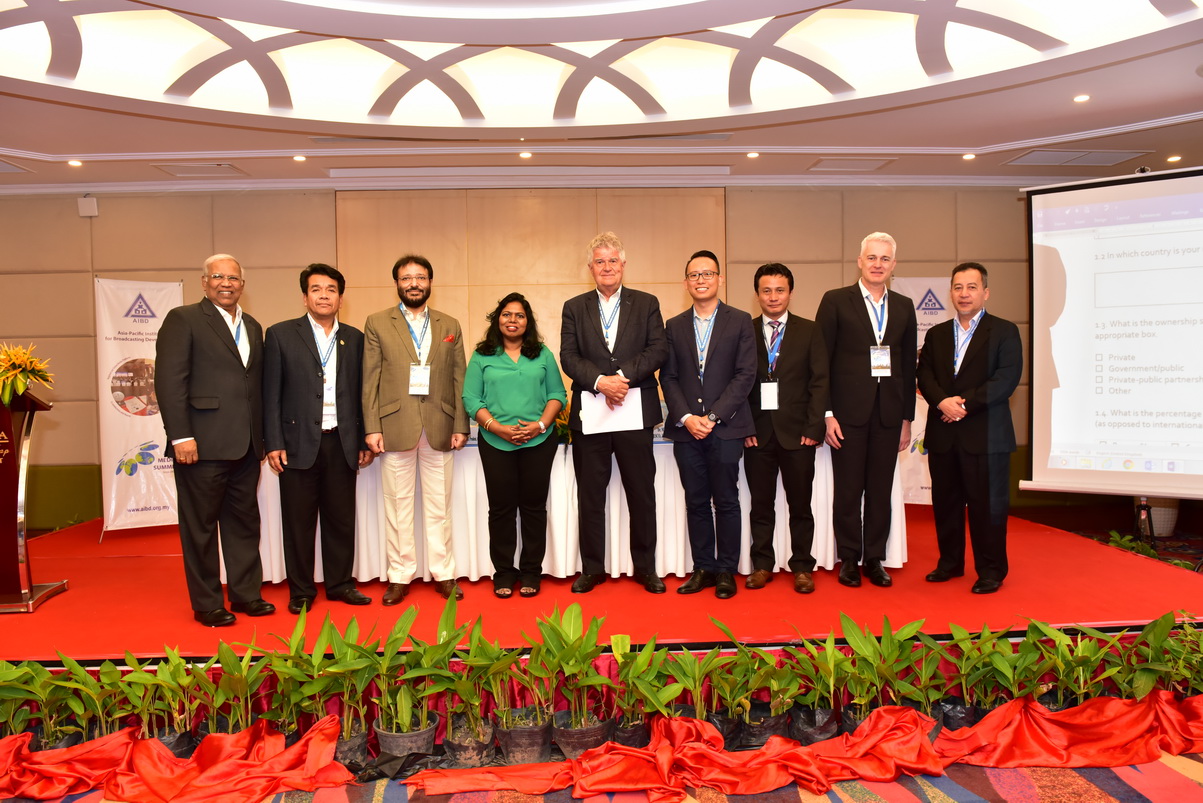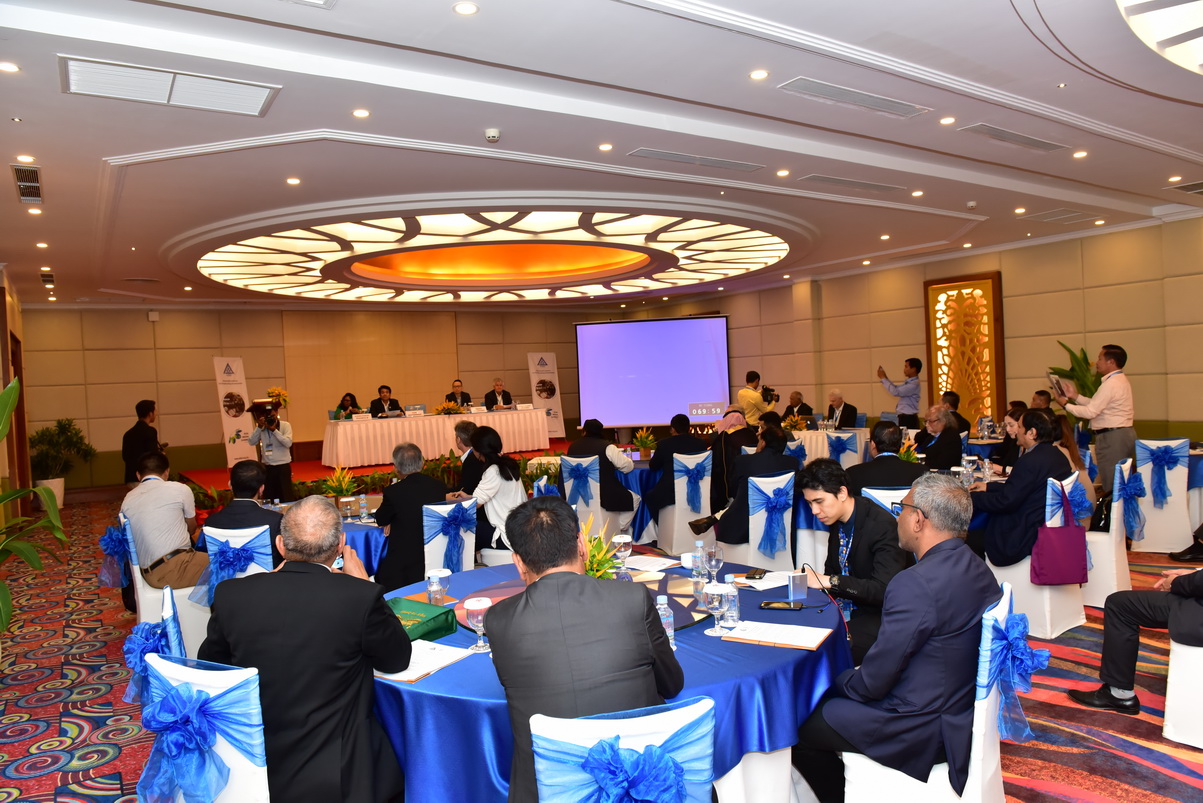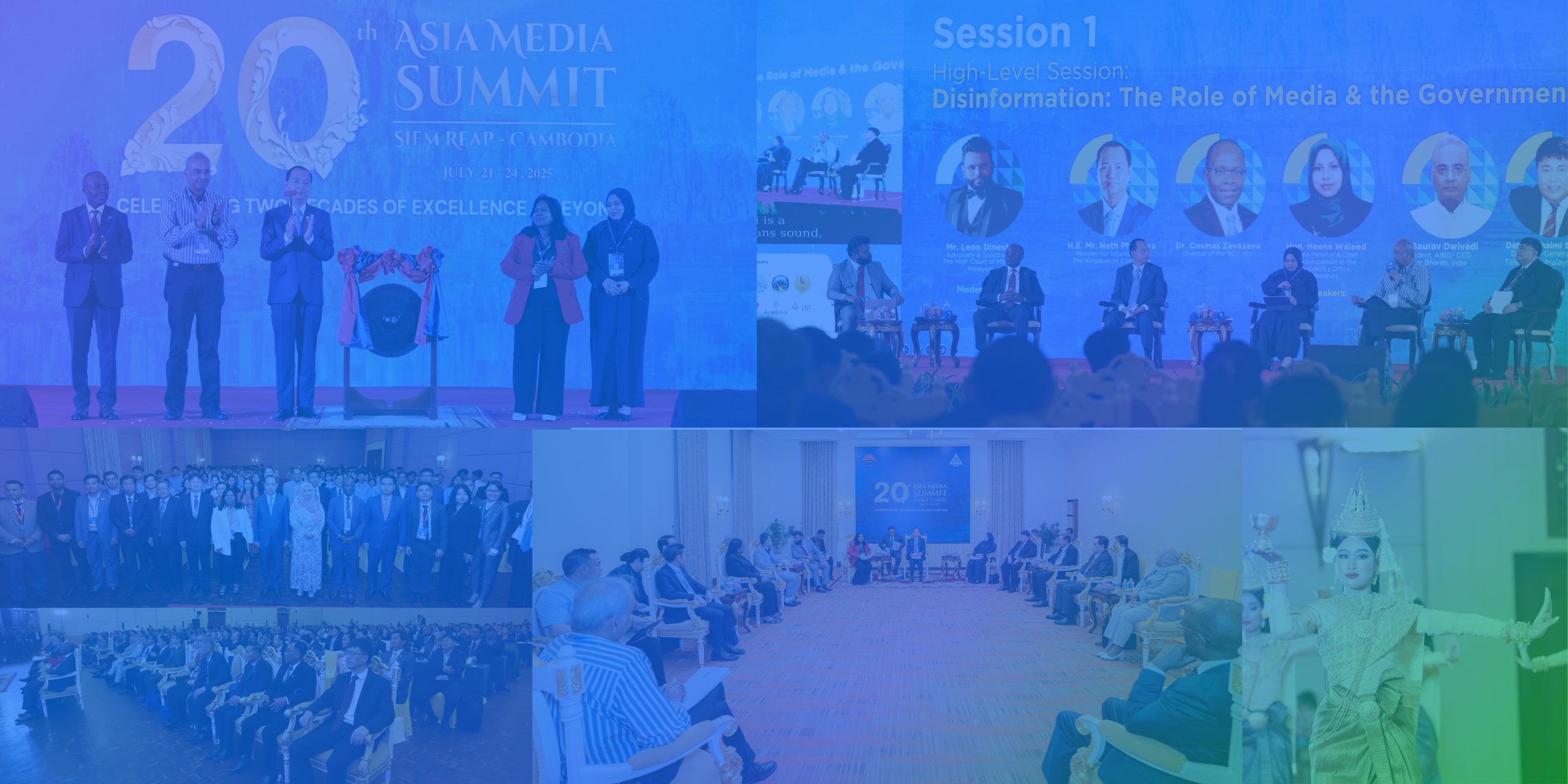
AIBD Launches More Anti-Fake News Activities
Heads of public service media in Asia Pacific have agreed to support AIBD’s activities to deal with the spread of disinformation/fake news, among them the conduct of a year -long research project that will examine the impact of disinformation on its member countries, which are mostly public service broadcasters. It is alsoan attempt to understand ‘fake news’ as a research concept and impact on society from the Asian broadcasters’ perspective.
In a special meeting AIBD arranged after the closing ceremony of the 16th Asia Media Summit on 3 June 2019 in Cambodia, Mr Fayyaz Shehryar, AIBD President, said fake news is a menace plaguing Asian societies and destroying democracy.
Aside from the research project, he said that AIBD is also working on a proposed conclave of some 26 Information Ministers this year who will discuss, among others, measures to address disinformation.
In a special ministerial meeting on the first day of the Summit on 12 June 2019, Information Ministers from Bangladesh, Cambodia, Myanmar and the Philippines agreed to hold a special meeting of Information Ministers from Asia Pacific. Senior officials from Korea and Samoa also supported this proposal.
According to AIBD Officiating Director Philomena Gnanapragasm, with support from UNESCO two Malaysia-based universities are involved in the research project. These are Taylor’s University and Berjaya University College.
The survey now in progress is meant to collect baseline data and insights that can help public service broadcasters in dealing with ‘fake news’ and engaging with the audience about ‘fake news’.
She also said AIBD will conduct more training programmes to fight disinformation or fake news.
Mr Has Sam Ath, Under Secretary of State, Ministry of Information, Cambodia, recalled that during the 2018 AIBD General Conference held in Colombo, Sri Lanka he suggested more activities to deal with fake news.
Another measure some public broadcasters raised during the meeting was stronger regulations to prevent disinformation.
Dr Ming Kuok Lim, Advisor for Communication and Information, UNESCO Office in Jakarta, Indonesia, said in terms of policy, “ our position is if a law is to be made, it should be carefully and clearly defined so that it may not be used to stifle freedom of expression and clamp down criticisms or things government may not like”.
He informed participants that UNESCO is pursuing awareness raising, capacity building and policy advice in dealing with disinformation.
What can broadcasters do to counter disinformation/fake news?
Dr Lim suggested that media practitioners can produce public service announcements, and undertake training and outreach programmes. He also said that UNESCO has published a manual to help media deal with fake news.
Mr Klaus Bergmann, Director of International Relations, Deutsche Welle, Germany, and Chairman of EBU International Broadcasting Assembly, shared Europe’s experiences in combating disinformation.
In his presentation, he said that under German law, providers of social networks are obliged to delete within 24 hours hate speech/fake news and publish deleted items within a month.
“Public prosecuting authorities investigate reports on unlawful language submitted by media. Media identifies unlawful comment; we preserve evidence; we document content in a pdf file. Then we report dossier to authorities through email and the prosecution will investigate. After this media companies will report protection measures and conviction”, he said.
He also said that the European Broadcasting Union (EBU) composed of 72 public services broadcasters in 56 countries welcomes any campaign against fake news, developing techniques to deal with challenges in new media landscape.
Public service media needs political independence and regular funding to successfully fight disinformation”, he said.
Mr Riyaz Sayed-Khaiyum, CEO of Fiji Broadcasting Corporation (FBC), Fiji, said issues surrounding fake news are complex and undertaking a research to better understand its nature and impact on society is a ‘good start”.
He also said FBC is launching a 30-minute broadcast programme, using light humour to recognise fake news.







